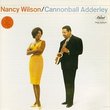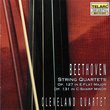| All Artists: Gustav Mahler, Otto Klemperer, Christa Ludwig, Philharmonia Orchestra of London, Elisabeth Schwarzkopf Title: Mahler: Symphony No. 4; 5 Lieder Members Wishing: 0 Total Copies: 0 Label: Angel Records Release Date: 6/8/1999 Album Type: Import, Original recording remastered Genres: Pop, Classical Styles: Vocal Pop, Opera & Classical Vocal, Historical Periods, Modern, 20th, & 21st Century, Symphonies Number of Discs: 1 SwapaCD Credits: 1 UPC: 724356703520 |
Search - Gustav Mahler, Otto Klemperer, Christa Ludwig :: Mahler: Symphony No. 4; 5 Lieder
 | Gustav Mahler, Otto Klemperer, Christa Ludwig Mahler: Symphony No. 4; 5 Lieder Genres: Pop, Classical
|
Larger Image |
CD DetailsSimilarly Requested CDs |
CD ReviewsVery generous for the price Ray Barnes | Surrey, British Columbia Canada | 06/10/2000 (5 out of 5 stars) "This Mahler 4th has been in the catalogue for a long time and still remains competitive, due to the warm and deeply felt slow movement, the polished playing, and Schwarzkopf's contribution in the finale. The Philharmonia strings' timbre is very truthfully recorded, due in no small part to the balancing of Walter Legge. The Lieder make a very apt and substantial bonus and Christa Ludwig's performances are no less recommendable. Fine documentation, recommended at medium price." Nothing but blue skies Jim Kibble | 05/08/2000 (5 out of 5 stars) "Contrasting this work with the stormier proceedings of his other symphonies, Mahler compared it to "the undifferentiated blue of the sky." It's true that the Fourth lacks the massive contours--the throw-weight, we might say--of its symphonic siblings. But it's a work of surpassing delicacy and beauty, from the opening salvo of sleighbells and reeds through the final, folklorical vision of heaven (courtesy of "Das Knaben Wunderhorn.") Klemperer handles it all with high polish and surprising warmth, which makes this a classic recording indeed: the closest we'll ever come to Mahler channelling Haydn with (as the man said) blue skies overhead." Wonderful Conducting Virginia Opera Fan | Falls Church, VA USA | 01/16/2007 (4 out of 5 stars) "Klemperer's conducting and the orchestra's execution are the prime reasons for acquiring this recording of the Mahler Fourth. About Schwarzkopf's singing in the finale, I have reservations. To place those reservations in context, let me say that I regard her as one of the great singers of the 20th century and possess virtually all of her studio discography and many concert performances. Unfortunately, I don't think Mahler's child vision of heaven played to her strengths. Mahler instructs the soloist to sing without a hint of parody. Simplicity in this music isn't Dame Elisabeth's strong suit with her constantly shifting colors and coy emphases. Her sophisticated style just doesn't work well in this context. She's the sort of kid who should be seen and not heard. It doesn't help that she seems somewhat out of sorts vocally and comes dangerously close to the vocal wobble that was so anathema to her and Walter Legge. So, with apologies to the shade of a beloved singer, this one is compromised by the vocal performance.
About the Ludwig/Klemperer lieder, I have no reservations whatever." |

 Track Listings (9) - Disc #1
Track Listings (9) - Disc #1








